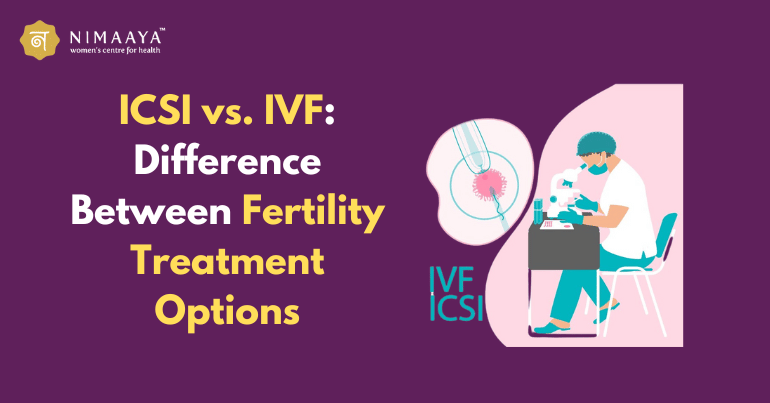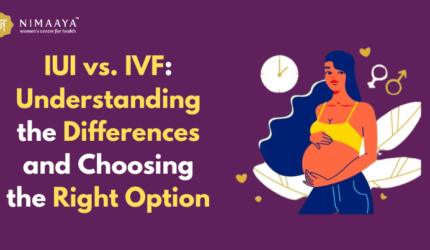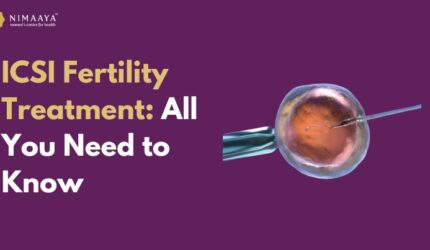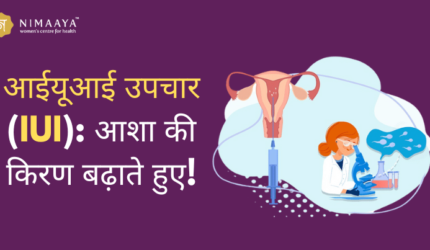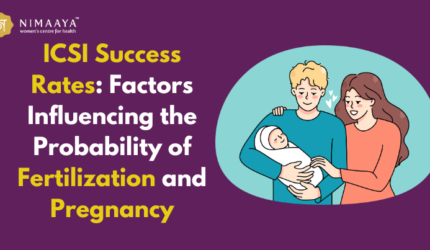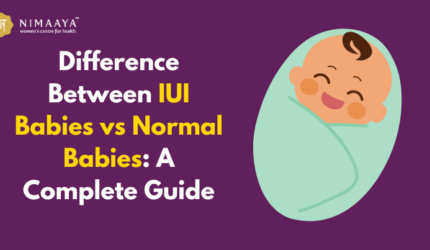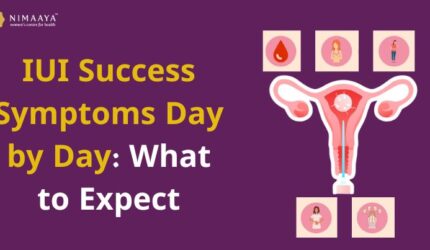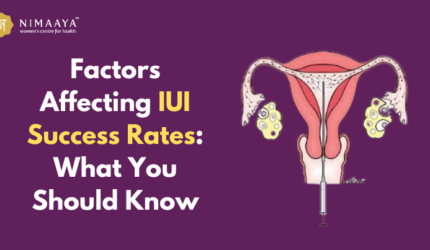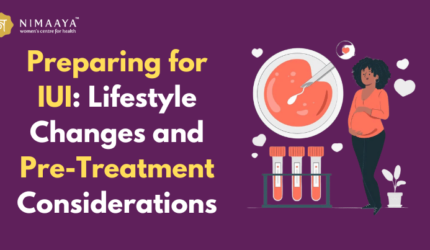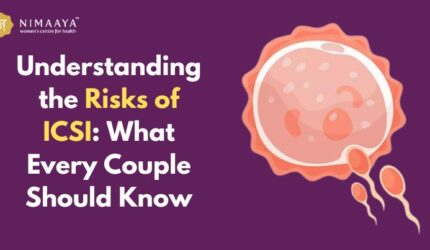Embarking on the journey of parenthood can be a roller coaster, especially when faced with fertility challenges. In the realm of assisted reproductive technologies, two prominent options often come into play: IntraCytoplasmic Sperm Injection (ICSI) and In Vitro Fertilization (IVF).
Understanding the nuances between these two methods is crucial for couples navigating the maze of fertility treatments. This comprehensive guide aims to shed light on the key differentiators, success rates, costs, benefits, and potential concerns associated with ICSI and IVF.
ICSI vs IVF: A Closer Look
As eggs are retrieved and fertilized outside the body, the ICSI vs IVF debate comes into focus regarding the fertilization method. While traditional IVF relies on the natural interaction of sperm and egg, ICSI vs IVF success rates often highlight the advantage of ICSI in cases where the conventional method might encounter hurdles. The cultured embryos, a key stage in IVF, are carefully monitored before the crucial step of transferring them to the uterus—an intricate process that adds another layer of consideration to the ICSI vs IVF deliberation.
In Vitro Fertilization (IVF):
IVF has long been a beacon of hope for couples struggling with infertility. This process involves stimulating a woman’s ovaries to produce multiple eggs, which are then retrieved and fertilized outside the body. The fertilized embryos are cultured for a few days before being transferred to the uterus. ICSI vs IVF is a pivotal choice that couples face when navigating assisted reproductive technologies. In the context of IVF, the stimulation of ovaries is a critical step, aiming to maximize the number of viable eggs for fertilization. During the ICSI vs IVF decision-making process, it’s essential to consider how the stimulation phase influences the overall success rates.
IVF Procedure:
The IVF (In Vitro Fertilization) procedure involves a series of carefully orchestrated steps to assist couples in achieving pregnancy. First, the woman undergoes ovarian stimulation to produce multiple eggs. These eggs are then retrieved and combined with sperm in a laboratory setting for fertilization. The resulting embryos are cultured for a few days, and the healthiest ones are selected for transfer into the woman’s uterus. This process provides a controlled environment for fertilization and early embryo development, offering a viable solution for couples facing various fertility challenges.
Intracytoplasmic sperm injection (ICSI):
Intracytoplasmic Sperm Injection (ICSI) stands as a pivotal technique within the broader realm of assisted reproductive technologies, notably in the context of ICSI vs IVF. This advanced procedure involves the precise injection of a single sperm directly into an egg, amplifying the chances of successful fertilization. Unlike conventional IVF, where fertilization occurs through the natural interaction of sperm and egg, ICSI takes a more targeted approach. This method is particularly beneficial in cases of male infertility, where factors like low sperm count or poor motility may impede the natural fertilization process. By strategically addressing these challenges, ICSI has emerged as a powerful tool in the hands of fertility specialists, providing a tailored solution for couples navigating the intricate landscape of fertility treatments. The nuanced differences between ICSI and IVF underline the importance of informed decision-making, ensuring that individuals and couples can choose the most suitable approach based on their unique circumstances.
ICSI Procedure:
ICSI procedure, on the other hand, takes a more targeted approach. It is a specialized form of IVF where a single sperm is directly injected into an egg to facilitate fertilization. This precise method is particularly beneficial in cases of male infertility, where the sperm may have difficulty penetrating the egg naturally. This precision is crucial for overcoming challenges related to sperm quality, quantity, or motility. ICSI ensures that even in cases where conventional IVF might face obstacles, such as low sperm count or poor sperm motility, the chances of successful fertilization are significantly enhanced. By directly addressing male infertility issues at the microscopic level, ICSI has become a revolutionary technique, offering renewed hope for couples striving to achieve a successful pregnancy.
ICSI vs IVF Success Rates:
Success rates play a pivotal role in deciding the most suitable fertility treatment. IVF, with its established track record, has been a go-to option for many couples. However, when it comes to overcoming male infertility challenges, ICSI stands out. The success rates for ICSI vs IVF vary based on individual circumstances.
Recent studies indicate that ICSI can be more effective in cases of severe male infertility, achieving higher fertilization rates. Couples need to consult with fertility specialists to determine the most suitable approach based on their unique situation. When evaluating fertility treatment options, it’s crucial to consider the IVF-ICSI success rates in India to make informed decisions about the most effective and suitable approach for achieving a successful pregnancy, when you are in India. The Nimaaya IVF Center, a leading fertility clinic in India, offers a range of services, including both IVF treatments and ICSI treatments. Understanding the success rates and options available at reputable centers is crucial for couples seeking fertility solutions in the Indian context.
ICSI vs IVF Cost:
Cost is a significant factor influencing the choice between ICSI-IVF Cost. While IVF is generally less expensive than ICSI, the latter’s higher success rates in certain scenarios may justify the additional expense. Factors such as the number of treatment cycles required and any additional procedures can impact the overall cost. Understanding the financial implications and discussing them with fertility experts is crucial for couples to make informed decisions. Some may find that the benefits of ICSI outweigh the cost considerations, especially when addressing specific male infertility issues.
Understanding the cost implications of ICSI and IVF is vital for couples navigating the financial aspects of fertility treatments. The cost of ICSI can be higher due to the specialized nature of the procedure. However, couples should consider the potential benefits, especially if male infertility factors are predominant. Comparing the costs and success rates of ICSI and IVF at reputable fertility centers, such as the Nimaaya IVF Center, can provide valuable insights. Couples should explore financing options and inquire about any available support programs to make informed decisions.
Benefits of IVF vs ICSI
IVF Benefits:
In vitro fertilization (IVF) offers a spectrum of benefits for couples struggling with infertility. Firstly, it provides a viable solution for various causes of infertility, whether they stem from male or female factors. IVF allows for the screening of embryos, minimizing the risk of genetic disorders and increasing the likelihood of a healthy pregnancy. Additionally, it provides couples with the option to preserve and freeze embryos for future use, offering flexibility in family planning. The emotional and psychological support provided throughout the IVF journey further contributes to its holistic approach, making it a transformative and hopeful path towards parenthood.
ICSI Benefits:
The benefits of ICSI extend beyond its success rates. This procedure can be a game-changer for couples facing challenges related to male fertility. ICSI enables fertilization even when sperm quality is compromised, offering a ray of hope to those grappling with severe male infertility conditions.
Additionally, ICSI can be coupled with preimplantation genetic testing, allowing for the screening of embryos for certain genetic disorders. This additional layer of scrutiny enhances the chances of a healthy pregnancy.
ICSI vs IVF Birth Defects:
When delving into the realm of assisted reproductive technologies, concerns about potential birth defects are naturally at the forefront of many couples’ minds. The comparison between ICSI and IVF about birth defects is an area of ongoing research and discussion within the medical community. While both procedures aim to fulfill the shared dream of parenthood, studies suggest a slightly higher incidence of birth defects associated with ICSI when compared to conventional IVF. It is essential to note, however, that the overall risk remains relatively low for both methods.
Couples navigating the decision between ICSI and IVF should engage in open and transparent discussions with their healthcare providers to gain a comprehensive understanding of the potential risks and benefits specific to their unique circumstances.
Genetic counseling may also be recommended to provide a more personalized assessment of the likelihood of birth defects based on individual factors. Ultimately, a well-informed decision, guided by medical expertise, ensures that couples can approach the journey to parenthood with confidence and clarity.
The concern over potential birth defects is a crucial aspect to consider when evaluating fertility treatment options, particularly in the context of ICSI vs IVF birth defects. The ICSI vs IVF debate concerning birth defects underscores the importance of informed decision-making. Couples undergoing fertility treatments should engage in comprehensive discussions with their healthcare providers, weighing the risks and benefits based on their unique circumstances. Understanding the nuances of this aspect can contribute significantly to a well-informed choice between ICSI and IVF, aligning with the ultimate goal of a healthy and successful pregnancy.
Female Infertility and Assisted Reproduction:
While male infertility often takes center stage in discussions about ICSI, it’s crucial to recognize that female infertility is equally significant. IVF remains a versatile option for addressing various female fertility challenges, including issues with ovulation, tubal blockages, or unexplained infertility.
The choice between IVF and ICSI should be guided by a thorough understanding of the specific fertility issues faced by both partners. Fertility specialists play a crucial role in conducting comprehensive evaluations and recommending tailored treatment plans.
Conclusion:
In the intricate landscape of fertility treatments, the choice between IVF and ICSI requires careful consideration of individual circumstances, preferences, and medical advice. While IVF has been a longstanding and successful option, ICSI emerges as a specialized approach with distinct advantages, particularly in cases of severe male infertility.
As technology advances and research evolves, the field of assisted reproductive technologies continues to offer hope to couples facing fertility challenges. Navigating this journey with the guidance of experienced fertility specialists ensures that couples can make informed decisions tailored to their unique needs and aspirations.

